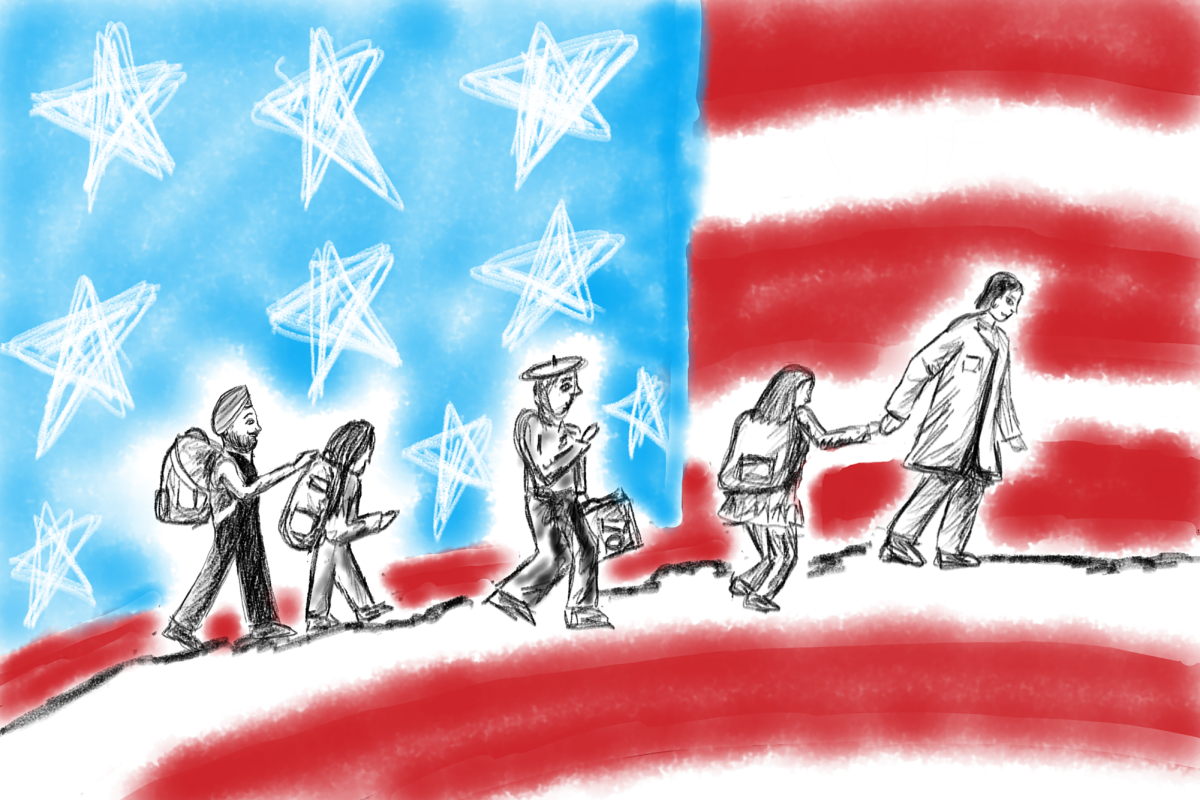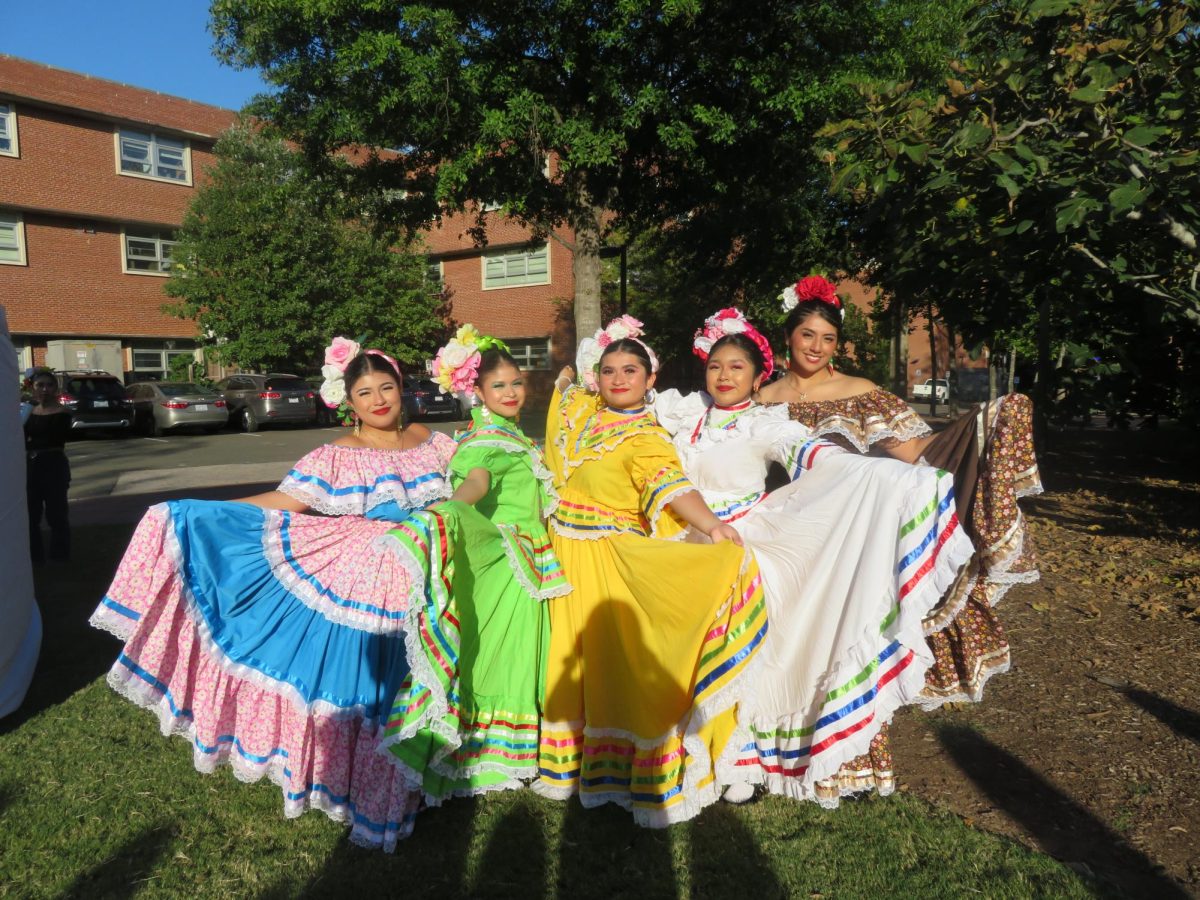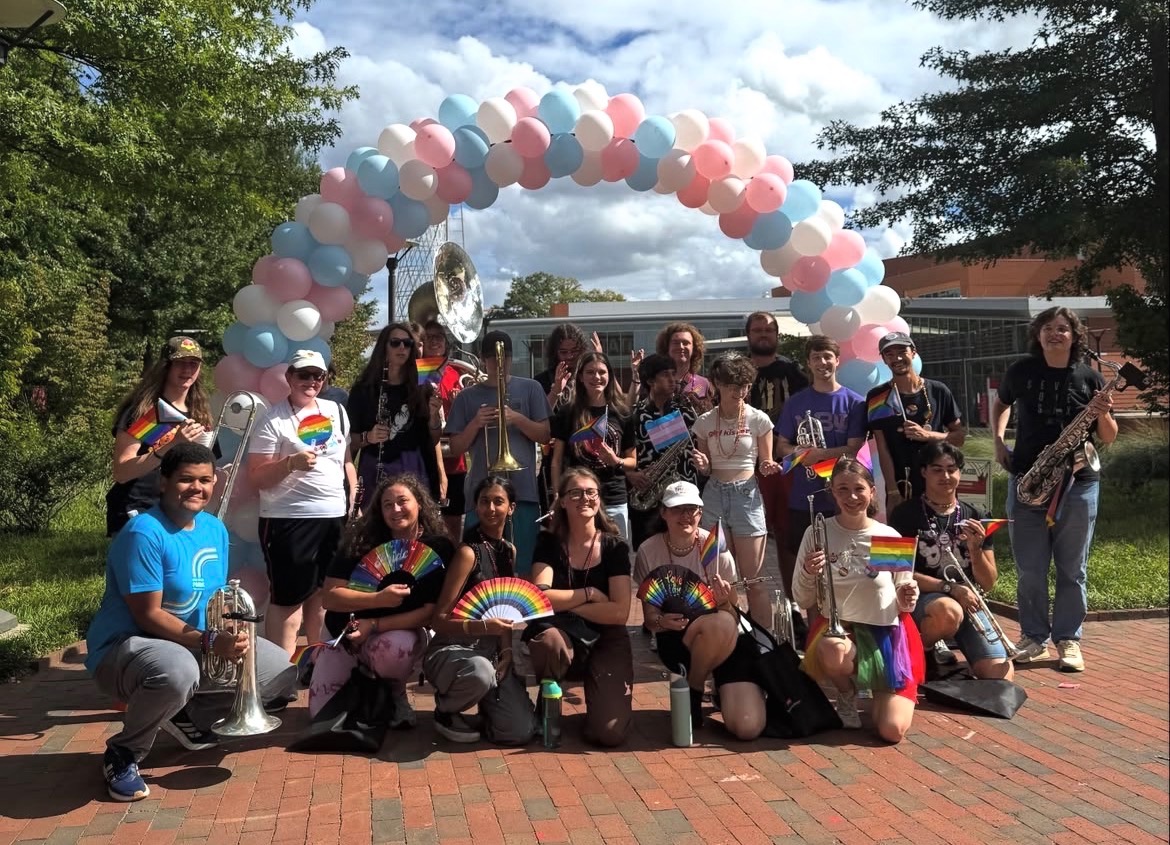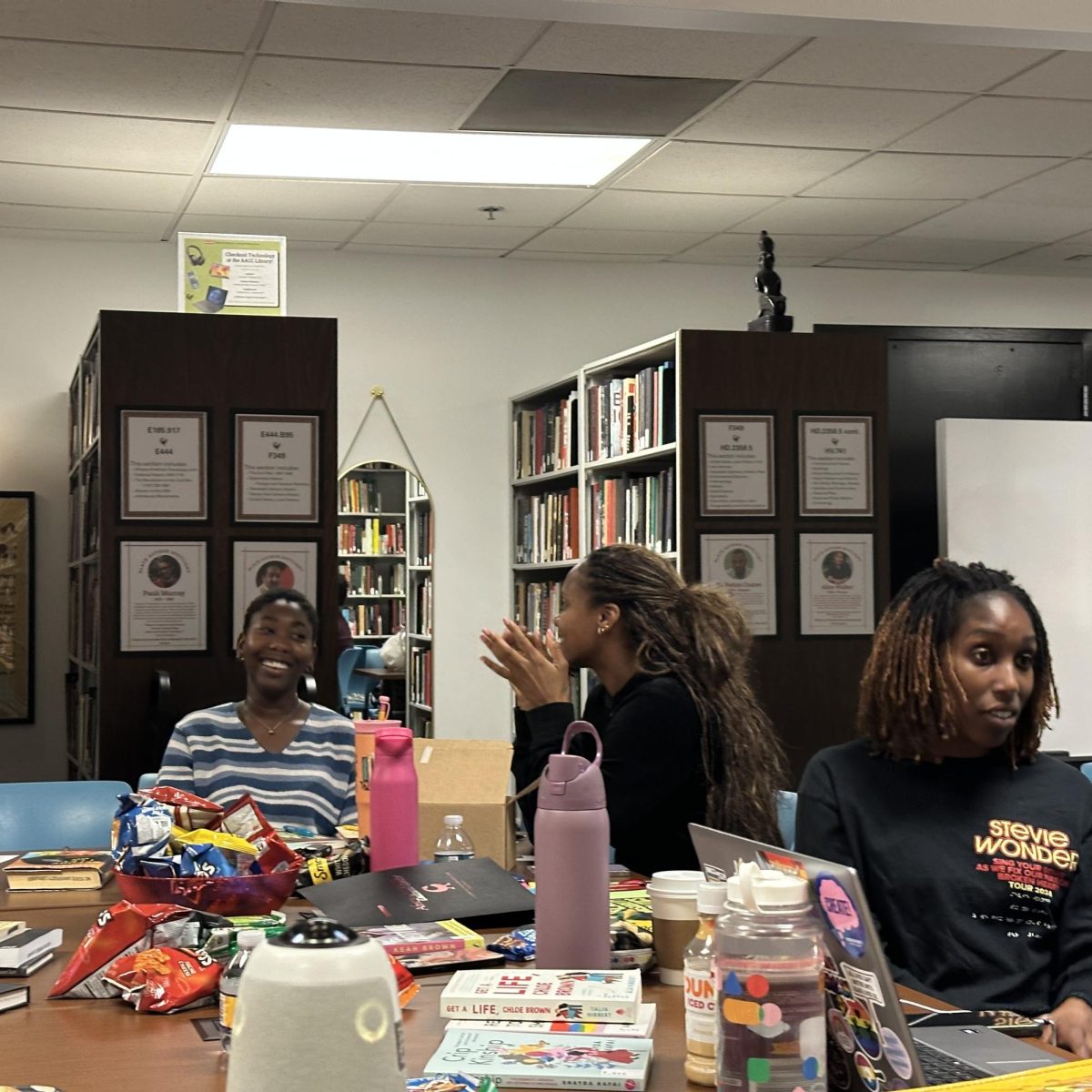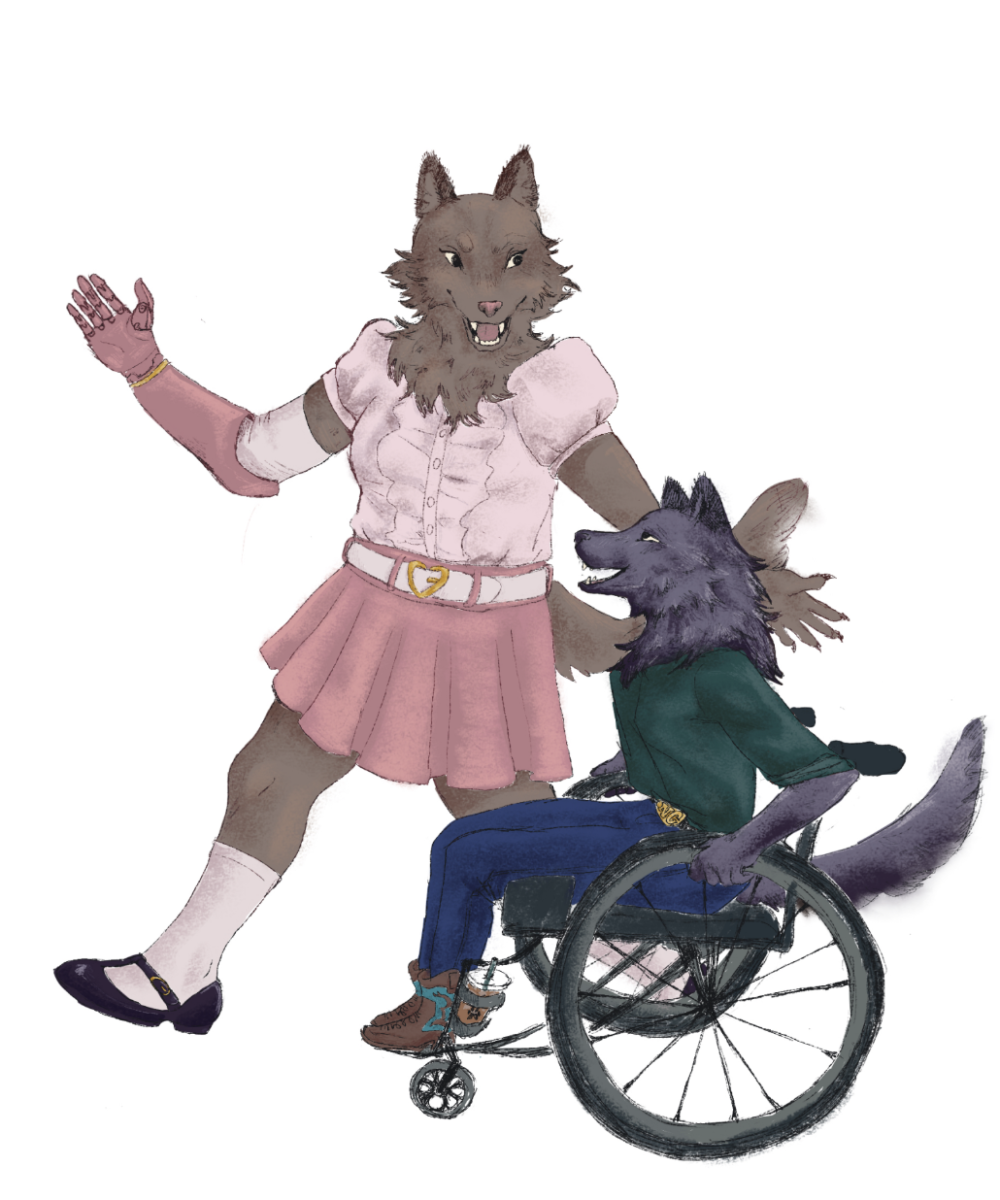Content warning: An interviewee describes an incident involving the use of a racial slur
President Donald Trump’s rhetoric and policy changes surrounding immigration have launched discussion and debate among legal scholars, political pundits and historians alike. While immigrants come from all racial and ethnic backgrounds, Trump’s increasingly hostile and dangerous rhetoric is often aimed solely at those from Central and South American countries.
With an overall lack of empathy coming from his administration, The Nubian Message wanted to highlight a few of the millions of people impacted by the Trump administration’s actions, speaking to six NC State students about their experiences in the current climate, either as immigrants themselves or as first-generation Americans.
These students included Karim Ortega, a third-year majoring in conservation biology whose parents immigrated from Mexico, Abrianna Moreno, a third-year majoring in social work whose mother immigrated from Peru and Kelly Hernandez, a third-year majoring in social work whose parents immigrated from El Salvador and Mexico.
Given the sensitive nature of this topic, three students wished to remain anonymous — a first-year political science student whose mother immigrated illegally to the U.S. from Mexico with her when she was one, who will be referred to as R.L., a second-year majoring in fashion and textile design who was adopted from Guatemala and will be referred to as A.G. and a third-year majoring in genetics whose father immigrated from Colombia, who will be referred to as K.D.
The Nubian Message: The Trump administration recently undid a policy restricting ICE from certain enforcement actions, such as arrests, in or around “sensitive locations” like schools, churches, hospitals and more. What was your initial reaction to hearing about this policy change?
“I honestly thought it was really crazy,” said Moreno, adding, “Even if people are mad [that] people are coming here illegally, I feel like they should still have empathy for the children,” pointing out that young kids are often unaware of what might be going on.
She shared that upon hearing this news, she first thought of her local church, which has a large Hispanic population, and said, “I feel like it gives no one a safe space.”
“I think, the whole criminalization of immigration is just awful, and it’s dehumanizing, and I think that it’s intentionally dehumanizing to people, especially from developing countries,” said K.D. “We’ve destabilized so many countries, even just looking at Latin America, the United States has caused so many coups … so I see this as a wider issue.” She continued, “people are coming from other places for a reason,” and said “The United States kind of has its hands everywhere,” making a profit off the land and people in these countries.
TNM: Trump also announced that he’d be instructing the Department of Defense and Homeland Security to prepare a 30,000-person detention center for deportees in Guantanamo Bay — which is notorious for human rights violations. What was your reaction to hearing about this news and what do you think it says about the direction things are headed for immigration in the coming years?
“My reaction to that news was just a lot of frustration and just anger,” said Ortega, “He’s just generalizing a group of people.” He added, “To send them to a place that is notoriously known for abusing human rights, it just shows what he wants to do to these people”
“I think that it’s scary and what I think as well is, you know, we read about the Holocaust and those types of events and, like, ‘Why did nobody stop this?’ ‘Why does nobody help?’ Like, ‘What was going on?’ And so now it’s like, okay, well, we kind of see it happening in real-time. Why? Like, what can we do? Why is nobody really stopping him? Like, why can he do all of this, and so quickly?,” said R.L.
“I feel like it’s hit after hit after hit,” said Hernandez. “It just feels very disappointing. But I feel like as a community, we have to rise up together and do what we can, protesting, sharing information, sharing sources, sharing charities or nonprofits.”
TNM: President Trump has used increasingly escalating language when talking about immigrants. What do you think the impact of this language is and have you personally seen or heard any examples in which this rhetoric may be influencing public perception of immigrants in general or changing the things that people feel comfortable saying out loud?
“I think it has changed so much,” said Hernandez, who pointed to an example from Trump’s first term saying, “I remember protesting and they said they were gonna deport me–I’m an American citizen–so you’re speaking just out of what you see online, or what you hear from the Trump administration, or just in general, the conservative narrative.”
“I definitely have felt the impact of his language before,” said Ortega. “The things he says can be very easy to digest and regurgitate back,” adding, “It just makes me very upset because when he describes these people he’s describing people that I see as my family.”
“I think that it’s really violent rhetoric to label a community like that and I think that it leads to a lot of fear around a community that should not be feared. If you’re seeking asylum in a country you’re seeking safety,” said A.G., who continued saying, “ I think that it creates a really ‘us versus them’ mentality in America. And I think that is so dangerous, because we’ve seen, in the past, other historical figures use that rhetoric, and it leads to people reporting their neighbors.”
A.G. said the idea that other people could think she is somehow messing up their community, “because of the fact that my skin is a different color than [theirs],” is really upsetting and mentioned a moment in a store recently where a stranger came up to her unprompted and said, ‘wow, you speak English really well,’ she added, “This is just the reality that we’re living in now.”
TNM: Has this rhetoric impacted how safe you or other people you know feel?
For Ortega it has, saying, “I have a hard time focusing on school because ICE is in my hometown and there’s a chance one of my family members might be detained for something and it’s like I can’t do anything to help because I’m here.”
He says he feels like “being separated is already so ingrained in our culture” adding, “My dad recently saw his mom for the first time in 24 years and I just don’t want that to happen again with any of my family members.”
This rhetoric has impacted R.L. as well who said, “Trump hates who I am to a T. He hates my existence as a whole. I am a prime example of who he would want out of this country because I’m here illegally” and “It’s terrifying to think that people can view other people in that way, or think of human beings in that way.”
She gave a personal example of the influence of Trump’s rhetoric from her own life, sharing the experience of a family friend, who is Mexican, that occurred when they were both in fifth grade. “The day after Trump was [first] elected, at school, he was called a w—-ck and told to go back to where he came from. He was told horrible, horrible, horrible things that I think no fifth grader should be told and especially no fifth graders should be saying.”
Hernandez said that Trump’s language, particularly as he is in the highest office, makes people feel comfortable saying these things.
She has felt the impact of his rhetoric as well, sharing that she has heard people say “Speak English; it’s America,” and gotten weird looks when speaking Spanish to her family in public, impacting how safe she feels, particularly due to being in the South.
TNM: People have talked about various stores that immigrant communities tend to frequent now being ghost towns; have you heard about or noticed any changes in where people go, or other ways in which the fears around ICE are impacting people?
“For sure,” says K.D “Everyone is freaked out. And I think it was very pronounced right after the [inauguration] too.”
“I’ve grown up a native here [in Raleigh], so I know what these areas are like and how they’re filled with people and just joy and just like crowds of community, and they’re gone; they’re gone and they’re scared,” said Hernandez
R.L. shared that because her stepdad is here legally, if their family needs anything from Hispanic stores, such as Compare Foods, he will go to pick it up for them now. “And they’re empty. And so it’s very disheartening to see that,” she said.
TNM: What are you thinking and feeling about the years to come in general and about the future of this country?
“I feel terrible. I feel like we’re on a sinking ship,” said K.D.
“I honestly feel like something is going to happen, I feel like probably,some sort of, like, revolution or something will happen,” said Moreno, who added “I feel like the future of this country is very scary, even with stuff not relating to immigration.”
Hernandez echoed this saying, “I’m just more or less bracing for impact,” but she also said “I think I have endless hope.” “Working in social work, I can see how community comes together, and I see kind of the beauty of that.”
TNM: With such divisive and generalizing anti-immigrant rhetoric, what’s something that you wanted to share or wanted people to understand about immigrants from your experience?
“I’m very proud to be a product of immigrants,” said Ortega, adding that he didn’t have the words to show how “hard-working they are and how loving and how open-minded they really are.”
A.G. said that she wanted to, “share the fact that a lot of what Trump does takes away the empathy and the human stories of immigrants and these people who have come to the country seeking asylum are just trying to work for their families to make a better life for themselves. And in my experience, even if they don’t know English, they have helped me learn Spanish. They are such a welcoming community and just bring a lot of joy into the different communities that they are a part of.”
“It’s really sad to see such a joyous community be targeted,” she added.
“I feel like immigrants are very hard working people. I think a lot of people forget that they are also people too. And it takes a lot of work to come here from another country. So when a person does it, it’s not because they want to commit crimes or something. Like, they genuinely want a better life … my mom, when she came here, she didn’t know anyone — she didn’t see her mom for like 18 years too after she came here. And I feel like a lot of people don’t understand the emotional toll it also has on immigrants as well. I think, for someone to come here and leave everything behind, it’s definitely a last resort, or something that they need to do,” said Moreno.
She added, “I feel like when people come here, they sacrifice so many things, and I feel like a lot of people now don’t really see that, and they just see people coming here and taking their jobs, when in reality, that’s not really happening.”
R.L. said, “Since the day that my mom has gotten here she has worked her ass off day and night. Growing up, I would see her once a week — in the afternoon, after school — because she would work so hard to be able to give me what she needed. So, she did not come here with any malicious intent.” Adding, “She gave away everything that she possibly could, so that we could come here with a clean slate.”
“I would say immigrants are just regular people, and I am really proud to be a daughter of an immigrant, and I’m very proud of my family members that have immigrated, because when they have immigrated, they have [done so with] love and compassion, both for their family members, but also their communities,” said K.D.
Hernandez said, “They’re just like you. They’re families that work hard, they pay taxes. They are people that raise from the ground up. From a country that hates you so much, they’re people that try to thrive and find community within their community. And it’s really gut wrenching that people think such nasty things. But I want people to know that.”
“Please show sympathy. Please show sympathy for families that are being broken apart, for families that don’t know what’s to come, for families that are in hiding; please show sympathy. Advocate, use your platforms. Go to information sessions, tell your friends. People are just like you.”
She added, “As a first-generation college student, none of my family’s ever been in university, and I wouldn’t have been here without them. They did everything for me growing up.”
TNM: Is there anything else you want to share?
The contributions and exploitation of immigrants
Ortega wanted to highlight the work immigrants do, saying, “They do a lot for the agricultural industry, and of course, I don’t want people to forget how important they are, but I think one thing I would love [for] people to know is how exploited they are.”
“They are hardworking individuals and a lot of times they overlook themselves, or they literally do destroy their bodies and a lot of times they’re not even getting a good wage.”
The dangers of Trump using scientific language
For K.D., coming from her background as a genetics major, she wanted to call attention to a statement Trump made on the campaign trail in October 2024, in which he said that immigrants who had committed murder did so because it was in their genes and said there were “a lot of bad genes in our country right now.”
She said, “we’re not only seeing this dehumanization, but we’re seeing some of this, like, perversion of science, or like using science to justify his racism, basically, which is f—-d up,” adding “I think that should be identified and also called out.”
“When you start using the word genes, you’re talking science, and you’re talking real biology, and that is not real biology, nobody has bad genes.”
The demonization of the LGBTQ+ community and other minority groups
A.G. said, “One thing that I also worry about is the intersectionality of the immigration laws that are being made and LGBTQ+ rights,” adding she worries about the Trump administration further weaponizing language, pitting people against one another and making it seem like people are “a danger to American society, which is very dangerous rhetoric to be putting in the media.”
Ways to help the local community
For Hernandez, she wanted to highlight some local charities such as El Pueblo and Neighbor To Neighbor, adding, “If you go to undocu.carolina.edu you’ll see a huge link with a lot of Latin charities and nonprofits that help undocumented immigrants within our community, and also just [help] the Latin community in general.”

